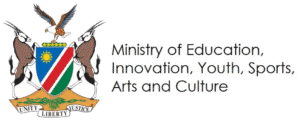Assessing the utilization of Information and Communication Technologies in inclusive classes in the Oshana region of Namibia
Keywords:
Continuous Professional Development, special educational needs, Information and Communication Technologies, inclusive educationAbstract
The introduction of Information Communication and Technology (ICT) in the 21st century has transformed education processes in inclusive classes, including the role of teachers and learners. Inclusive classes typically comprised learners with and without extensive special needs. While hand-made and technology- based teaching and learning materials are vital for the process of learning for all learners, it becomes more important for learners with special educational needs who are likely to miss the acquisition of competency attainment if ICTs are not used or not used properly. The major objective of this study was to assess the utilisation of ICTs to enhance the teaching of learners in inclusive classes in Namibia, with specific reference to the Oshana region. The study assumed a qualitative case study design. The researchers adopted a purposive sampling to draw information-rich cases. This made it easier for the researchers to understand the subject under enquiry. Schools A and B were selected based on the fact that they were the only inclusive secondary schools pronounced as spaces for sampling the implementation of inclusive education by the Ministry of Education in 1995, and are thus still regarded as intentional inclusive secondary schools, teaching children with special educational needs in the Oshana Region. All the sixteen teachers for inclusive classes from the selected schools were also purposively selected to take part in the study as they were the ones directly involved in the teaching and learning process of inclusive learners at these two schools. Based on qualitative analysis of data collected through interviews and observations, the study concluded that ICT tools were indispensable teaching aids when teaching learners in inclusive classes. The study also concluded that teachers were faced with a myriad of ICT-related challenges, but there are possible solutions to address them and improve the teaching and learning of learners in inclusive classes, especially those with special educational needs (SEN). The study recommended the training of teachers in ICTs among others, as possible solutions to challenges that inhibit the successful integration of ICTs in inclusive classes. It also recommended that teachers should receive pre-service training on ICT use and how to integrate ICT tools during lessons in inclusive classes. Teachers for inclusive classes should be provided with sufficient and efficient ICT gadgets, so that they utilise them to enhance the teaching of learners with special educational needs. Lastly, in keeping track with dynamics in the space of technology, teachers should undergo Continuous Professional Development to ensure that they are easily adaptable in Information and Communication Technologies relevant to the inclusive school environment.
Downloads
Published
How to Cite
Issue
Section
License

This work is licensed under a Creative Commons Attribution 4.0 International License.






